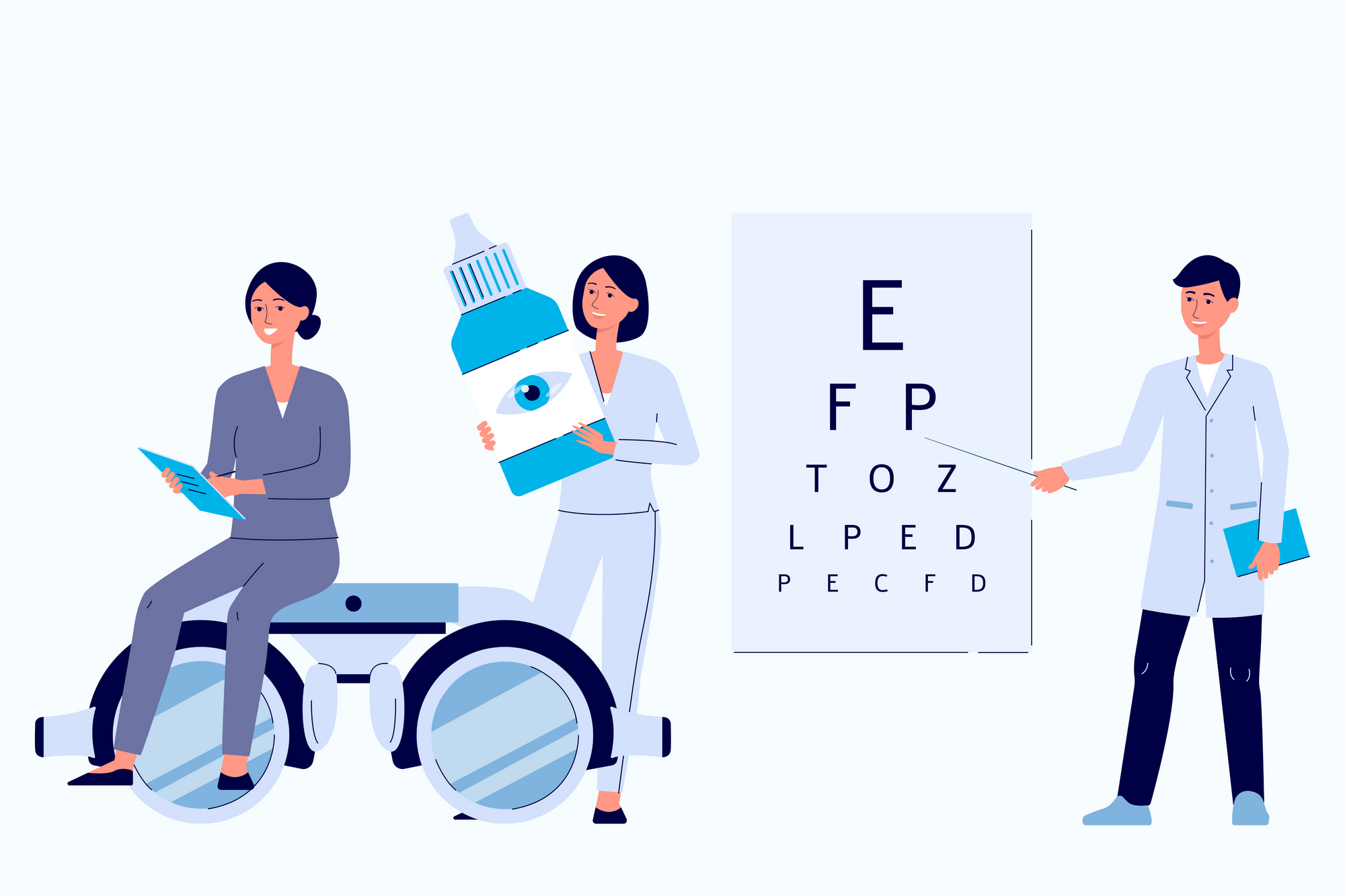
The difference between opticians, optometrists and ophthalmologists.
What is the difference between optometrists, opticians and ophthalmologists?
The roles of opticians, optometrists and ophthalmologists are often misunderstood. They are three very different professions that specialise in eye care, all uniquely important when it comes to getting advice on all eye related subjects.
It's a question that we're asked on a regular basis. This is due to each profession being involved in OcuPlan and seeing every customer at some point throughout their OcuPlan care. This blog explains the difference between the three professions, their specialisms and their roles within OcuPlan.
Optician
An optician is an essential role within your eye care team. They offer expert advice on your vision and eye prescription. They are highly experienced and trained specifically to offer guidance on optical subjects and fitting glasses and contact lenses. They use prescriptions supplied by optometrists and ophthalmologists, but aren't usually qualified to write prescriptions, conduct tests or diagnose eye diseases.
With regards to OcuPlan, when you visit your optician store for your optometrist appointment. It will likely be the optician who greets you and asks any questions before you're introduced to your optometrist.
Optometrist
Optometrists are qualified eye care professionals who provide primary vision care such as sight testing, condition diagnosis and management of vision changes. They commonly conduct and perform tests and practices such as vision tests, OCT scans and visual field tests. They carry out their role within an optician store and will be the person who performs eye exams. They are qualified to detect eye abnormalities, and can recognise when a patient has a condition such as glaucoma, macular degeneration or cataracts. If an abnormality is identified, they are normally qualified to prescribe medications.
Within OcuPlan, you'll see your optometrist either one, two or three times per year depending on your requirements. At these appointments, they will carry out your OCT scans and your visual field tests. The scans are then sent to the ophthalmologists for review.
Ophthalmologists
An ophthalmologist is an ophthalmic surgeon who specializes in ocular medicine and the care of your eyes and vision. Ophthalmologists are required to go through years of pre-medical education and medical school and then followed up by many more years of hands-on surgical training. They diagnose and treat all eye diseases and perform eye surgeries such as cataract operations. Many ophthalmologists are also involved in scientific research on the causes and cures for eye diseases and vision disorders.
Our network of OcuPlan ophthalmologists carry out your advisory appointments. As with your optometrist appointments, you'll see your chosen ophthalmologist up to three times per year. During these appointments, they will review the OCT and visual field scans that your optometrist carried out, and they'll analyse the results in order to determine what treatment is required to help manage your eye condition.
We hope this helps you to better understand the role of your eye care professionals and provides insight into each important role. To find your local eye care professionals, visit ocuplan.co.uk and click on 'register'. If you'd like to learn more about OcuPlan and how we can help you to save up to 50% on private eye care, call us on 020 7173 5200 or email us on support@ocuplan.co.uk.
About OcuPlan
OcuPlan offers the gold standard of clinical care for patients with long-term eye conditions to help minimise the risk of sight loss.